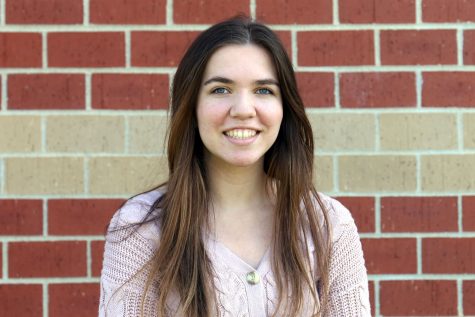Cancel culture is necessary
Public figures should be held accountable for their wrongdoings
After receiving backlash for her involvement in the Central Park Five case, former New York sex crimes prosecutor Linda Fairstein has been “canceled” by the masses.
September 20, 2019
Released on Friday, May 31, the Netflix Original “When They See Us” rattled the nation in its portrayal of the Central Park Five. The film enraptured its audience as the stories of five black men, wrongly convicted of rape, became a victim of the U.S. justice system.
One woman to blame for the wrongful incarceration is Linda Fairstein, who at the time was a prosecutor for the New York sex crimes unit. Up until now, Fairstein was never held accountable for the harm she’s caused to Kevin Richardson, Antron McRay, Korey Wise, Yusef Salaam or Raymond Santana Jr., retaining her social status; she even won Glamour Magazine’s Woman of the Year Award in 1993. It wasn’t until the release of “When They See Us” that Fairstein faced sharp backlash from the masses.
Almost immediately, the hashtag #CancelLindaFairstein circulated across social media platforms. Enraged voices called for the boycott of books Fairstein had written, encouraging her publishers to drop her entirely. In time, Fairstein had not only deleted her Twitter account but resigned from her position at Safe Horizon, an anti-domestic violence organization, and was dropped from Dutton Publishing. The voices of the people effectively “canceled” Fairstein.
The direct impact people had in this instance represents not only the power of public opinion but the necessity of it with regards to holding public figures accountable. This is the “cancel culture” that our communities rely on: people raising their voices when someone is in the wrong, fighting for justice and proving to others that certain behaviors will not go unnoticed.
Drawing the line between what’s right and wrong or who’s changed and who hasn’t isn’t always as straightforward as Fairstein’s case, and these blurred lines have led to the growing dislike of the term “cancel,” primarily on social media. Despite this, it is important to understand the positive effects that result from people standing up to voices that perpetuate falsities, discrimination and bigotry.
Whether it be in our government, our communities, on our TV screens or our social media feeds, it is our job to make sure people with power are checked. The messages public figures and celebrities spread are heard by the world; they influence our communities in major ways, and it is up to us to make sure that these messages will bring positive change, not hatred.
People may never agree about who should and who shouldn’t be “canceled,” but acknowledging that someone’s behavior is concerning is better than saying nothing. Don’t let the negative connotations of “cancel culture” fool you; it is a powerful beacon for change.












Shane Lancaster • Jun 18, 2020 at 2:01 am
So damaging someone’s reputation beyond repair is necessary too? How about ruining their background check, rendering them unemployed? Is that necessary too?
Just, no. This is wrong.
Jacks • May 5, 2020 at 6:01 am
The problem with mob justice is … It’s not justice… Forcing someone to resign by tweeting at them is not cool or progressive, it’s an unfair and terrifying prospect of the future. It’s completely messed up that you’re advocating for that. The way to hold public officials accountable is for their own supervisors, oversight agencies, and constituencies to act through established processes and laws.
There’s nothing just or honorable in harassing a woman into resigning from an entirely different job/career years after her alleged mistake. For the supposed misdeed of prosecuting an alleged rape, no less. It’s actually weak, malicious, facetious, and evil. Not to mention undemocratic… Imagine if she was an elected official, and the Twitter mob forced the people’s choice of their representative to resign without cause
Wesh • May 5, 2020 at 5:55 am
Sure, but the appropriate way to acknowledge someone’s bad behavior is through criminal charges or a civil lawsuit. If you (or the state) can’t do either of those successfully, then it’s simply unfair and unjust to take action against the alleged perpetrator.
Some of those who have been taken down by Me Too and Cancel Culture and great artists, and their personal misdeeds and shortcomings don’t prevent people from enjoying the art they produce. Humanity shouldn’t be punished for what some people claim an artist did, if we blacklisted every artist or politician who engaged in sexual malfeasance, the world would be without some of its greatest thinkers, creators and leaders (Hemmingway, Socrates, Martin Luther King, Jr, etc).
For example, just because Kevin Spacey allegedly hit on a busboy (who wasn’t wearing a name tag with his age on it) we didn’t get to see a decent final season of House of Cards.
Because Garrison Kielor put his arm around a woman wearing a backless dress and she got upset when his hand ended up in her bare lower back. She did understand she was wearing a backless dress, right? And as a result, his decades long career ended in manufactured obligatory outrage and shaming, against a man who had done nothing intentional and arguably nothing wrong in the least. It’s not fair to the artists or to the audience that enjoys the culture they create. Notice I’m not defending rapists or gropers, but your support of cancel culture is a defense of a broad approach and the false positives and collateral damage that results. That’s unacceptable — one of the most basic concepts of justice is that it’s a hundred times worse to punish an innocent person than to let a guilty one to free. Cancel Culture is trying to convince us all that the reverse is actually true.